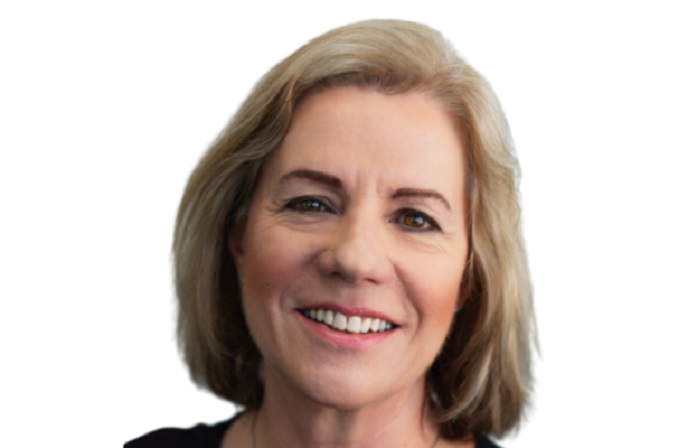
Kiwibank’s Digital Strategy Lead speaks to FST Media about Kiwibank’s digital roadmap for the year ahead and what banking will look like in 2020.
FST Media: What are your priorities for the next 12 to 18 months?
Fletcher-Dobson: As part of our 10 year strategy, over the next three to four years Kiwibank is investing heavily in building a digital platform for the future that will support and drive the growth of the bank, allowing it to be agile as the business changes and creates a long-term sustainable cost base. A cornerstone for Kiwibank is the implementation of a new SAP core banking system to underpin our transactional, product, pricing, and payments capabilities. We are also building significant digital capabilities and scale throughout the bank, and are continuing to focus on reinventing banking experiences in the customer channels through such initiatives as Online Relationship Managers and Home Hunter.
FST Media: What will banking look like in 2020?
Fletcher-Dobson: Banking is facing the most incredible disruption across every facet of the industry from business models to op models. I find it a very exhilarating space to be in, and I think that if we could go back to the start of the industrial revolution it would have a similar feeling to working in digital in banking right now.
Our problem is that banking has sluggishly and almost reluctantly followed the internet. It has gone from PC-based online banking taking off in the early 2000s to the internet going mobile from 2008 [onwards]. We have managed to get away with being a slow follower because our most profitable customers during this time were Baby Boomers and Gen X customers.
In the last few years, it has all changed at an amazing pace as a result of three key shifts. Firstly, our new main bank customers will be digital natives; secondly, the internet is rapidly evolving to a new era of API networks, shifting big data, and ultimately, the Internet of Things. And thirdly, smart digital players outside of the banking industry are building successful Fintech businesses and markets.
We have to design our businesses, products and services to be relevant to customers of the future who expect personalised experiences that allow them to manage their lives better. These are customers who favour brands that display openness and transparency, in addition to delivering sustainable value. Currently, 75% of millennials say they would prefer financial services from the likes of Google, Amazon, and PayPal than from a bank. As banks are essentially data businesses open to disintermediation, that is a significant wake-up call for the financial services sector.
With this in mind, about 18 months ago we created a ‘2020 and Beyond’ vision for Kiwibank by looking at human needs and what global trends would grow or diminish over this decade and beyond. The financial needs banks satisfy in society now may not change dramatically, but critically the way many of those financial needs are met will be radically different because of digital disruption.
We have much to do as for us to remain relevant to customers in six years time banking will look dramatically different to what it is today.
FST Media: What is Kiwibank’s digital roadmap for the year ahead?
Fletcher-Dobson: Our purpose is ‘Kiwis Making Kiwis Better Off’ and this will be reflected as we continue to use digital to reinvent banking experiences. We sometimes forget we are a bank that is even younger than Google and we are now launching into our second phase of growth, after having grown rapidly in the last 12 years. A lot of the work is on continuing to build a digital platform for future growth and scale. This includes a big focus on using digital to empower our people from the back office to the frontline and to deliver the scale we need for our new phase of growth. We have a mobile-first digital design principle and customers will be seeing some really interesting and useful changes in this space. Mobile payments is a key focus for the whole industry so we are looking at this area too.
FST Media: How have apps such as Home Hunter delivered value to the business, and how will you build on this success?
Fletcher-Dobson: Home Hunter was a step change for Kiwibank not only through the concept of reinventing home lending through digital and data, but also the way we delivered it by using Agile and a cross-functional proposition focus, rather than a traditional IT waterfall project. Home Hunter is more than just an app, it is a digital lending platform that can work across all of our channels. It uses big data to pre-approve both lending customers and also New Zealand’s housing stock; and it brings together banking and real estate to deliver a rich, immersive digital experience that can operate more like a digital business than a traditional bank digital channel. Home Hunter has already passed a number of key business milestones and has also won four major awards since launch – including the NZ Innovators Award and winning the NZ Design Institute Best award in its category, so we are really pleased. We are looking to extend the digital and data lending model behind it across the business.
Home Hunter was built with development, design and data partners. This approach of breaking down walls and working with others is something we are really looking to accelerate and we have already done some integration work to partner with Xero. Our business customers can now quickly set up feeds for Xero; they can prepare statements in Xero and send them securely to their internet banking account, ready to be checked and authorised by a business owner. By taking out the friction, business owners can spend more time doing what they do best which is running a business.
FST Media: In what ways can Kiwibank take advantage of New Zealand’s payments infrastructure to develop innovative payment products?
Fletcher-Dobson: Kiwibank’s Fetch mobile payments solution for business tradespeople is one example of where we have taken advantage of New Zealand’s payments infrastructure. Research showed that New Zealand’s businesses are owed $2.5 billion in unpaid invoices each month, with staff spending 18 million hours a year chasing them. We looked at new ways of paying to break that mountain of debt and that fit with our purpose of ‘Kiwis Making Kiwis Better Off’. Digging a bit deeper, we found the big reason for the high level of unpaid invoices was the long delay encouraged by old-school invoicing practices. If Kiwi businesses offer quicker and easier ways to pay, they can reduce the actual costs involved in invoicing and the worry caused by chasing late payment.
Kiwibank’s Fetch suite of payment services allows businesses to offer customers new ways to pay, such as by credit or debit card over a mobile phone, by regular installment, or via a website. Fetch works with most smartphones and tablets, and no additional hardware is needed.
FST Media: How do you encourage a culture of innovation in your team?
Fletcher-Dobson: Kiwibank has a high-energy culture that is always geared to challenging the norms. We are always looking at how we can turn things on their head to give the ultimate customer experience, whether that innovation is through a developer in IT or a frontline person in retail. I have been with the bank for seven years now and, coming from a non-banking background, I really love the fact that everyone is always talking about the customer and always looking for a better way. We have an awesome team and there is never any shortage of ideas and drive, but the obvious challenge is having the mechanisms in place to empower our staff to do great things.
Over the last year, I have been part of a team that redesigned our entire operating model to create a two-speed design and delivery platform that enables rapid delivery using Agile. This new operating model focusses on propositions rather than projects on top of a more traditional core systems platform. It is a hugely exciting way of working that we tested with Home Hunter and have incorporated the positives and learnt from the negatives to create a new way of scaling innovation like never before.
FST Media: Every leader has a legacy they wish to be remembered for, what is yours?
Fletcher-Dobson: The legacy I wish to be remembered for is to be who made New Zealand a better place through what they did everyday.





